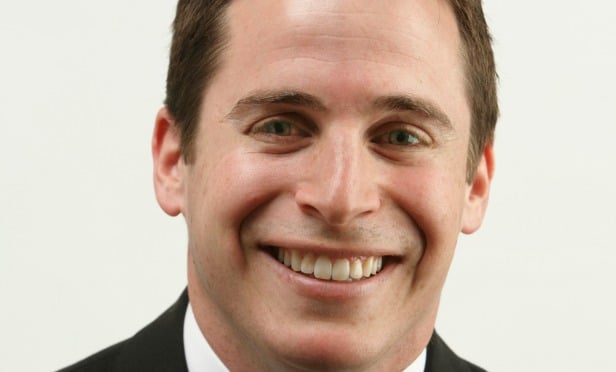 LOS ANGELES—As GlobeSt.com reported exclusively earlier this month, Lee & Associates has formalized a multifamily strategy to, as Kelsi Maree Borland wrote, “unify and organize that practice to better serve clients.” Click here Warren Berzack GlobeSt.com: Of course, one of the great things about multifamily is that it seems to be a little less cyclical than office or retail. Warren Berzack: GlobeSt.com: Which had to factor into the company's decision. Berzack: GlobeSt.com: So what's the next order of business? Berzack: GlobeSt.com: We talked about the cyclicality of the market and multifamily's strength. So, given all of the talk of the market peaking, it's an interesting time to launch. Berzack: GlobeSt.com: And so the perennial question . . . interest rates. Berzack: GlobeSt.com: And along with the Millennnial movement comes a focus on multifamily in TOD developments and CBD growth. Berzack: GlobeSt.com: So a lot of the growth for Lee will be in those scenarios. Berzack: GlobeSt.com: Do you see a general economic slowdown next year? Berzack: GlobeSt.com: With multifamily floating somewhat above it all. Berzack: GlobeSt.com: So what else worries you? Berzack: GlobeSt.com: Valuations based on potential worries me. Been there, done that. Berzack: GlobeSt.com: So, you're an optimist. Berzack:
LOS ANGELES—As GlobeSt.com reported exclusively earlier this month, Lee & Associates has formalized a multifamily strategy to, as Kelsi Maree Borland wrote, “unify and organize that practice to better serve clients.” Click here Warren Berzack GlobeSt.com: Of course, one of the great things about multifamily is that it seems to be a little less cyclical than office or retail. Warren Berzack: GlobeSt.com: Which had to factor into the company's decision. Berzack: GlobeSt.com: So what's the next order of business? Berzack: GlobeSt.com: We talked about the cyclicality of the market and multifamily's strength. So, given all of the talk of the market peaking, it's an interesting time to launch. Berzack: GlobeSt.com: And so the perennial question . . . interest rates. Berzack: GlobeSt.com: And along with the Millennnial movement comes a focus on multifamily in TOD developments and CBD growth. Berzack: GlobeSt.com: So a lot of the growth for Lee will be in those scenarios. Berzack: GlobeSt.com: Do you see a general economic slowdown next year? Berzack: GlobeSt.com: With multifamily floating somewhat above it all. Berzack: GlobeSt.com: So what else worries you? Berzack: GlobeSt.com: Valuations based on potential worries me. Been there, done that. Berzack: GlobeSt.com: So, you're an optimist. Berzack:  LOS ANGELES—As GlobeSt.com reported exclusively earlier this month, Lee & Associates has formalized a multifamily strategy to, as Kelsi Maree Borland wrote, “unify and organize that practice to better serve clients.” Click here Warren Berzack GlobeSt.com: Of course, one of the great things about multifamily is that it seems to be a little less cyclical than office or retail. Warren Berzack: GlobeSt.com: Which had to factor into the company's decision. Berzack: GlobeSt.com: So what's the next order of business? Berzack: GlobeSt.com: We talked about the cyclicality of the market and multifamily's strength. So, given all of the talk of the market peaking, it's an interesting time to launch. Berzack:
LOS ANGELES—As GlobeSt.com reported exclusively earlier this month, Lee & Associates has formalized a multifamily strategy to, as Kelsi Maree Borland wrote, “unify and organize that practice to better serve clients.” Click here Warren Berzack GlobeSt.com: Of course, one of the great things about multifamily is that it seems to be a little less cyclical than office or retail. Warren Berzack: GlobeSt.com: Which had to factor into the company's decision. Berzack: GlobeSt.com: So what's the next order of business? Berzack: GlobeSt.com: We talked about the cyclicality of the market and multifamily's strength. So, given all of the talk of the market peaking, it's an interesting time to launch. Berzack: © Touchpoint Markets, All Rights Reserved. Request academic re-use from www.copyright.com. All other uses, submit a request to [email protected]. For more inforrmation visit Asset & Logo Licensing.





